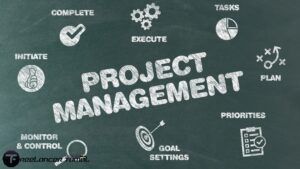
The Role of an Internet Marketing Expert
When it comes to navigating the ever-evolving digital landscape, an internet marketing expert plays a crucial role in helping businesses thrive online. Let’s delve into what defines an internet marketing expert and the skills and expertise required to excel in this field.
Defining an Internet Marketing Expert
An internet marketing expert is a professional who possesses in-depth knowledge and expertise in various digital marketing strategies and techniques. They are well-versed in leveraging online platforms to promote products, services, or brands and drive targeted traffic to websites. These experts understand the nuances of different marketing channels and are adept at crafting effective digital marketing campaigns.
Internet marketing experts employ a multifaceted approach to connect with their target audience and achieve marketing objectives. They harness the power of search engines, social media platforms, content creation, email marketing, and more to reach and engage potential customers. Their ultimate goal is to maximize online visibility, generate leads, and increase conversions.
Skills and Expertise Required
To excel as an internet marketing expert, a diverse range of skills and expertise is essential. Let’s explore some of the key areas where an internet marketing expert should excel:
-
Search Engine Optimization (SEO): An understanding of SEO techniques is crucial for driving organic traffic and increasing website visibility. Internet marketing experts should possess knowledge of keyword research, on-page and off-page optimization, and staying up-to-date with search engine algorithm changes.
-
Content Marketing: Internet marketing experts often employ content marketing strategies to attract and engage their target audience. Creating compelling blog posts, videos, social media content, and other forms of content is essential for building brand awareness and establishing industry authority.
-
Social Media Marketing: Proficiency in social media marketing platforms and strategies is a must for internet marketing experts. They should understand the intricacies of platforms like Facebook, Instagram, LinkedIn, and others, and know how to effectively engage with their target audience to promote products or services.
-
Analytics and Data Interpretation: Internet marketing experts use data and analytics to track the success of their campaigns and make data-driven decisions. Strong analytical skills are crucial for analyzing metrics and consumer behavior, identifying trends, and refining marketing strategies accordingly.
-
Communication and Collaboration: Effective communication skills are necessary for conveying marketing messages, collaborating with cross-functional teams, and building strong relationships with clients and stakeholders. Internet marketing experts must be able to articulate their ideas clearly and adapt their communication style for different audiences.
By possessing these skills and expertise, an internet marketing expert can develop and implement successful digital marketing campaigns that drive results. Continuous learning and staying up-to-date with industry trends are also essential for internet marketing experts to thrive in this ever-evolving field.
In the next section, we will delve into essential strategies for internet marketing, including search engine optimization, content marketing, and social media marketing, which are integral to an internet marketing expert’s toolkit.
Essential Strategies for Internet Marketing
To excel in the field of internet marketing, experts employ a range of strategies to increase online visibility, attract potential customers, and drive business growth. Three essential strategies that every internet marketing expert should be well-versed in are search engine optimization (SEO), content marketing, and social media marketing.
Search Engine Optimization (SEO)
Search engine optimization (SEO) is a critical strategy that helps businesses improve their website and content to rank higher on search engines like Google and Bing. By optimizing their online presence, businesses can attract more organic traffic and potential customers to their websites.
One of the key aspects of SEO is keyword research. Choosing the right keywords is essential as it helps match your offer with the demand of potential customers. Tools like Google Keyword Planner, Moz Keyword Explorer, or SEMrush can be used to find relevant and popular keywords for your business. By strategically incorporating these keywords into website content, meta tags, and headings, businesses can improve their visibility in search engine results and increase their chances of being found by their target audience.
For small businesses operating in a competitive online market, SEO can be a game-changer in attracting customers. To learn more about how to leverage SEO for your online visibility, check out our article on SEO expert.
Content Marketing
Content marketing is a strategy employed by internet marketing experts to attract and engage their target audience. By creating valuable and relevant content such as blog posts, videos, and social media content, businesses can establish themselves as industry leaders and build a loyal following.
Internet marketing experts understand the importance of regularly updating their websites with fresh and informative content. This not only helps with SEO but also keeps visitors engaged and encourages repeat visits. Additionally, content marketing allows businesses to showcase their expertise, answer customer questions, and provide valuable insights to their audience.
To succeed in content marketing, experts focus on creating content that resonates with their target audience. By understanding their audience’s needs, pain points, and interests, businesses can create content that provides value and builds trust. By consistently delivering high-quality content, businesses can build a strong online presence. For more examples and insights into content marketing strategies, visit our article on digital marketing expert.
Social Media Marketing
In today’s digital landscape, social media platforms play a crucial role in reaching and engaging with potential customers. Internet marketing experts leverage platforms like Facebook, Instagram, LinkedIn, and Twitter to connect with their target audience, build brand awareness, and drive traffic to their websites.
Through social media marketing, businesses can create engaging content, run targeted ad campaigns, and interact directly with their audience. By understanding the demographics and preferences of their target audience, experts can tailor their social media content to resonate with their followers. They also utilize analytics tools provided by social media platforms to track engagement, reach, and conversions.
An effective social media marketing strategy involves consistent posting, engaging with followers, and staying up-to-date with the latest trends and features of each platform. By building a strong social media presence, businesses can expand their online reach and nurture customer relationships. To learn more about how to leverage social media for marketing success, check out our article on facebook ads expert.
By implementing these essential internet marketing strategies – SEO, content marketing, and social media marketing, businesses can establish a strong online presence, attract their target audience, and achieve their marketing objectives. Internet marketing experts continuously refine their strategies based on industry trends and emerging techniques to stay ahead in the ever-evolving digital landscape.
Measuring Success in Internet Marketing
To assess the effectiveness of internet marketing efforts, it’s crucial for an internet marketing expert to have a clear understanding of key metrics and key performance indicators (KPIs) that indicate campaign performance. By tracking and analyzing these metrics, marketers can gain valuable insights into the success of their strategies and make informed decisions to optimize their campaigns.
Key Metrics and KPIs
When measuring the success of internet marketing campaigns, there are various metrics and KPIs that can provide valuable insights. These metrics help marketers understand the impact of their efforts and align them with the overall goals of the business. Here are some key metrics and KPIs commonly used:
| Metric/KPI | Description |
|---|---|
| Return on Investment (ROI) | Measures the revenue generated in relation to the cost of the marketing campaign. It helps determine the profitability and overall success of the campaign. |
| Return on Ad Spend (ROAS) | Specifically focuses on the revenue generated from advertising spend. It helps assess the effectiveness of paid advertising efforts. |
| Conversion Rate | Measures the percentage of website visitors who take a desired action, such as making a purchase or filling out a form. It indicates the effectiveness of the marketing campaign in driving desired outcomes. |
| Average Session Duration | Indicates the average time visitors spend on a website. Longer session durations suggest higher engagement and interest in the content. |
| Cost per Lead (CPL) | Measures the cost incurred to acquire a single lead. It helps evaluate the efficiency of lead generation efforts. |
| Cost per Acquisition (CPA) | Measures the cost incurred to acquire a new customer. It provides insights into the efficiency and profitability of customer acquisition strategies. |
| Website Traffic | Quantifies the number of visitors to a website. Monitoring website traffic helps gauge the campaign’s reach and popularity. |
| Bounce Rate | Measures the percentage of visitors who leave a website after viewing only a single page. A high bounce rate may indicate a lack of engagement or relevancy. |
Remember, the choice of metrics and KPIs should align with the specific goals and objectives of the marketing campaign. It’s important to establish clear goals and define KPIs upfront, using techniques such as objectives and key results (OKRs) or SMART goals to guide the measurement process (Invoca).
Tools for Tracking and Analytics
To accurately measure the success of internet marketing campaigns, marketers have access to a wide range of tools for tracking and analytics. These tools provide valuable data and insights to evaluate the performance of marketing efforts. Here are some commonly used tools:
- Google Analytics: A powerful web analytics tool that provides in-depth data on website traffic, user behavior, conversions, and more. It helps marketers understand the impact of their marketing campaigns and make data-driven decisions.
- Social Media Analytics: Social media platforms like Facebook, Twitter, and Instagram offer built-in analytics tools that provide insights into audience demographics, engagement, reach, and other key metrics. These tools help assess the effectiveness of social media marketing strategies.
- Marketing Automation Platforms: Platforms like HubSpot, Marketo, and Mailchimp offer comprehensive tracking and analytics capabilities. They provide insights into lead generation, email marketing campaigns, customer behavior, and more.
- Heatmap and User Behavior Analysis Tools: Tools like Hotjar and Crazy Egg enable marketers to visualize user behavior on their website through heatmaps, click tracking, and session recordings. These insights help optimize website design and user experience.
By choosing the right tools for tracking and analytics, marketers can gather accurate data, measure campaign performance, and identify areas for improvement. Utilizing these tools in conjunction with clear metrics and KPIs allows for a comprehensive assessment of internet marketing campaigns.
Measuring success is an ongoing process in internet marketing. By continuously monitoring and analyzing key metrics and KPIs, marketers can adapt their strategies, optimize their campaigns, and achieve better results over time.
Digital Marketing Campaign Examples
In the realm of digital marketing, successful campaigns can serve as valuable sources of inspiration and learning for digital marketing experts seeking to make an impact. Here, we will explore some notable examples of successful digital marketing campaigns and highlight the importance of research and targeting in achieving desired outcomes.
Successful Digital Marketing Campaigns
A well-executed digital marketing campaign has the potential to elevate a company’s brand through various online channels and engage with its target audience effectively. Examples of digital marketing campaigns include display advertisements, online videos, search engine marketing, paid social ads, and social media posts (Source).
One example of a successful digital marketing campaign is the content-driven approach taken by a brand to establish itself as a thought leader in the industry. By creating and sharing unique and valuable content, such as blog posts, articles, and videos, the brand can attract and build an engaged audience. This content marketing strategy helps in establishing trust and credibility, ultimately leading to increased brand awareness and customer loyalty.
Another example of a successful digital marketing campaign is the use of targeted social media advertisements. By leveraging platforms like Facebook, Instagram, and LinkedIn, companies can reach their desired audience with precision. These ads can be tailored based on demographics, interests, and behavior, ensuring that the message resonates with the target audience and drives desired actions.
Importance of Research and Targeting
Extensive research is a crucial component of any successful digital marketing campaign. By understanding the target market, competitors, and industry trends, companies can gain valuable insights that inform their marketing strategies. Research helps in understanding the target audience, their purchasing habits, and their behavior, allowing marketers to create campaigns that effectively communicate the brand’s value proposition (Source).
Identifying the target audience and designing a campaign with their unique needs and preferences in mind is paramount. Demographics, purchasing patterns, and communication styles should be taken into consideration to ensure that the campaign resonates with the intended audience. By tailoring the messaging and creative elements to align with the target audience’s preferences, companies can increase the effectiveness of their digital marketing efforts.
In conclusion, successful digital marketing campaigns serve as powerful examples of how strategic and targeted efforts can yield significant results. By conducting thorough research, identifying the target audience, and tailoring campaigns accordingly, digital marketing experts can maximize the impact of their marketing initiatives and achieve their desired objectives in the digital landscape.
Staying Current in Internet Marketing
In the fast-paced world of internet marketing, staying current on the latest trends and strategies is crucial for success. As an internet marketing expert, continuous learning and professional development are essential. Let’s explore the importance of staying current and some key strategies for doing so.
Continuous Learning and Professional Development
Internet marketing professionals must stay abreast of the latest online technologies, practices, and trends to remain competitive in the industry (Source). Continuous learning and professional development are key in achieving this.
Here are some effective ways for internet marketing experts to stay current:
-
Continued Education: Taking courses, pursuing certifications, or enrolling in online programs focused on digital marketing can provide valuable knowledge and insights. These educational opportunities cover topics such as SEO, content marketing, social media marketing, and more. They ensure that experts are equipped with the latest techniques and best practices.
-
Networking Events: Attending industry conferences, workshops, and networking events allows professionals to connect with peers, learn from experts, and stay updated on the latest trends and strategies. These events often feature keynote speakers, panel discussions, and interactive sessions that provide valuable insights into the ever-evolving landscape of internet marketing.
-
Webinars and Online Resources: Many organizations and industry experts offer free webinars and online resources that cover a wide range of internet marketing topics. These resources provide updates on emerging trends, tips, and strategies from industry leaders. Taking advantage of these opportunities allows professionals to expand their knowledge and stay current.
-
Industry News and Publications: Keeping up with industry news and publications is crucial for staying current. Subscribing to reputable digital marketing blogs, newsletters, and publications provides access to the latest insights, case studies, and trends. It’s important to allocate time for regular reading to stay informed about the evolving landscape of internet marketing.
Trends and Emerging Strategies
To stay current, internet marketing experts need to be aware of the latest trends and emerging strategies in the field. Here are some areas to focus on:
-
Content Marketing: Creating unique and valuable content as a marketing strategy continues to be a dominant trend. Internet marketing experts should stay updated on content marketing techniques, such as storytelling, video marketing, and interactive content, to engage and retain audiences.
-
Social Media Marketing: Social media platforms play a crucial role in digital marketing. Staying current on the latest trends and strategies in social media marketing, such as influencer marketing, social media advertising, and community building, can help experts maximize their reach and engagement.
-
Search Engine Optimization (SEO): SEO remains a fundamental aspect of internet marketing. Staying updated on the latest algorithm changes, keyword research techniques, on-page optimization strategies, and link building practices is essential for maximizing organic traffic and visibility.
-
Web Analytics: Understanding and utilizing web analytics tools is crucial for measuring the success of marketing efforts. Being knowledgeable about analytics platforms and metrics allows experts to track campaign performance, identify areas for improvement, and make data-driven decisions.
By continuously learning, adapting, and implementing the latest strategies, internet marketing experts can provide effective solutions to their clients or businesses. Staying current ensures that their tactics align with industry best practices and deliver optimal results in the ever-evolving digital landscape.
- Boost Your Business: Expert Google My Business Ranking Tipsby Freelancertamal●March 1, 2024
- Strategies to Improve Your Website Visibilityby Freelancertamal●February 18, 2024
- Unlocking Success: The Art of Freelance Project Managementby Freelancertamal●January 4, 2024
- Mastering Email Marketing in Rangpur: Secrets to Digital Triumphby Freelancertamal●January 4, 2024










